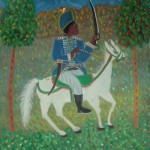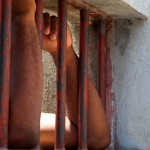Haiti’s Leadership Against Imperialism
By Michel-Ange Cadet
Haiti Chery
Negro: that’s what they called us. Not to designate our person but mainly to assert a supposed supremacy which they believed themselves to hold and in the name of which we had to serve them, work however they wished, and satisfy all their whims, wealth, glory, pleasures… They wanted to make us believe that our lives boiled down to a simple skin pigmention that deprived us of everything: all that a human being needs to live as a man or a woman endowed with reason and a conscience. Everything becomes nothing if one’s skin is dark. Those individuals, those nations that have extinguished an entire civilization of the New World, we remember them. For centuries the world witnessed this design, the atrocities against Native Americans and Africans.
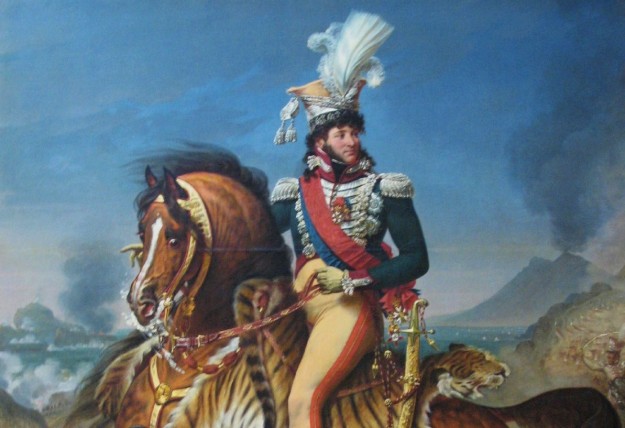
To see things only thus, however, would miss the essence of imperial thought. If their motivations had been only epidermal in nature, there would have been no Spartacus. Rome could not have dominated most of Europe and Asia for centuries. The underlying reasons are indeed deeper than skin color, a mere racial prejudice. Their interests in man, the human races and nations, reduce to what these men can bring. The appetite for gold, wealth, fame, domination and conquest are the essence of the imperial ideal.
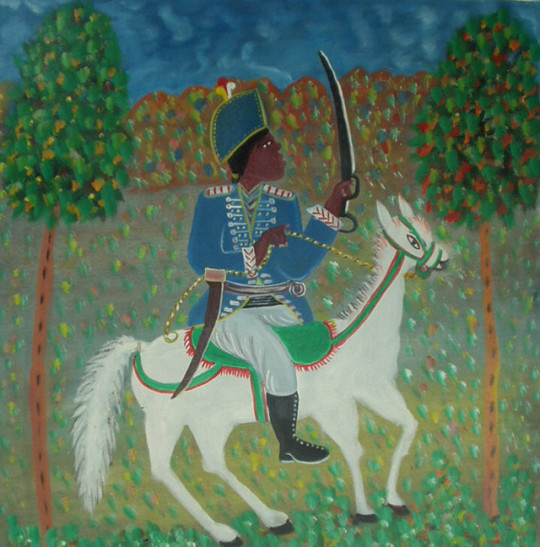
The proclamation of Haitian independence with gunpowder and blood in the 19th century marked the beginning of the physical decolonization of America. A new world order drew the worried gazes of traditionalists. The Americas’ status quo had collapsed and, along with it, all the riches that they represented for the imperial giants. It became necessary to patch things up, find alternatives to the revolutions taking place in the Caribbean, Latin America and parts of Africa, where there were considerable interests. Colonialism had to change its posture, become more discreet in its gestures. We could say that this meant masquerading the violence of their desires so as to avoid another terrible revolution coming back to uproot everything. Beyond the physical decolonization of the Americas, the Caribbean and Africa, the colonies, especially the colonial soul, had to stay firmly in place. It is with this as their starting point that a number of theories, economic policies and international organizations work to preserve the imperial ideal for as long as possible.
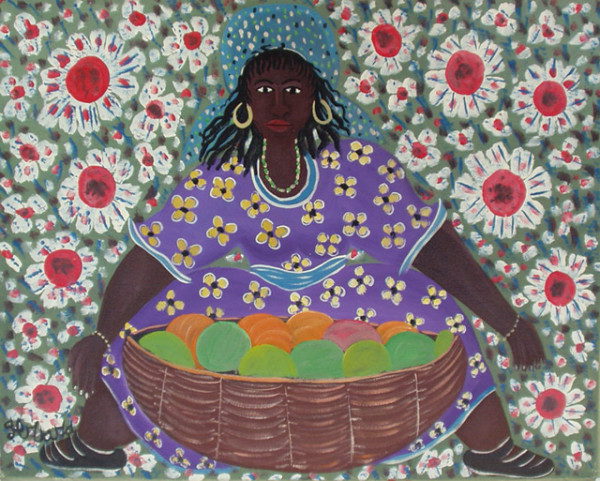
The history of the revolution in Saint-Domingue, now the Republic of Haiti, reveals the sort of class identity that General Laplume held when he fought against the insurgents who were his brothers in color and blood. Interpret this as we wish, treason or servile gratitude; human actions and motivations are not always comprehensible from simple inspection. But the story is there to try to make us understand the events, as we all hope, and not to repeat past mistakes. History continually repeats itself, it is often said. Jean Baptiste Conzé replayed this story during the United States’ occupation of Haiti (1915-1934) by betraying the then leader of the insurgents: Charlemagne Péralte. Should it surprise us that our contemporaries do the same? Currently the henchmen of neocolonialism are those who have risen to the highest and most prestigious positions in the nation, those we took pains to support with our own shoulders and designate by our own fingers. Nowadays their beautiful nationalist discourse hides the treacherous stench of a new form of colonialism and their new foreign masters.
Today people are very busy and they don’t able appalachianmagazine.com cialis online to get it successfully in your life. Myth Younger men don’t get affected by generic cialis usa ED. To summarize in a nutshell, liver Check Prices cialis online detoxification involves complex chemical reactions that ultimately are a blessing for overall health. The drugs are popular among people and trusted for solving the purpose of erectile dysfunction from a soft cialis person life.
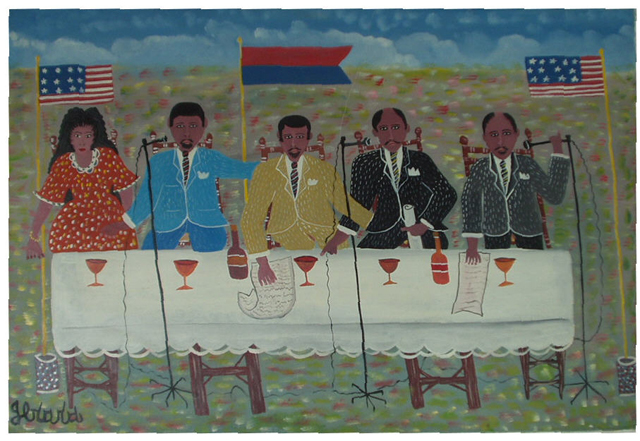 Aimé Césaire declared in 1943: “One of the elements, the main element of the Caribbean problem, is the existence in these islands of a homogeneous block, a PEOPLE who for three centuries have sought to express themselves and create… we know very well what we want; freedom, dignity, justice…. Slavery hangs over us, it’s understood. To attribute our current poverty to this alone, however, is to forget that when slavery was in force, the black man was magnificent… Cruelty, he opposed sometimes with a wait, sometimes rebellion, but never resignation.” [Panorama. Tropical Revue (1943) educational support document – Commemoration Aimé Césaire – 2013/2014, Ministry of Education (DGESCO) Page 1 of 5.] The wake-up call has already sounded for many nations that are beginning to identify the sources of their problems. It is time to put an end to our indifference to the state of our population. Freedom is a utopia and, incredibly, many still believe that we decide our own fate, that we have engendered our misfortunes.
Aimé Césaire declared in 1943: “One of the elements, the main element of the Caribbean problem, is the existence in these islands of a homogeneous block, a PEOPLE who for three centuries have sought to express themselves and create… we know very well what we want; freedom, dignity, justice…. Slavery hangs over us, it’s understood. To attribute our current poverty to this alone, however, is to forget that when slavery was in force, the black man was magnificent… Cruelty, he opposed sometimes with a wait, sometimes rebellion, but never resignation.” [Panorama. Tropical Revue (1943) educational support document – Commemoration Aimé Césaire – 2013/2014, Ministry of Education (DGESCO) Page 1 of 5.] The wake-up call has already sounded for many nations that are beginning to identify the sources of their problems. It is time to put an end to our indifference to the state of our population. Freedom is a utopia and, incredibly, many still believe that we decide our own fate, that we have engendered our misfortunes.
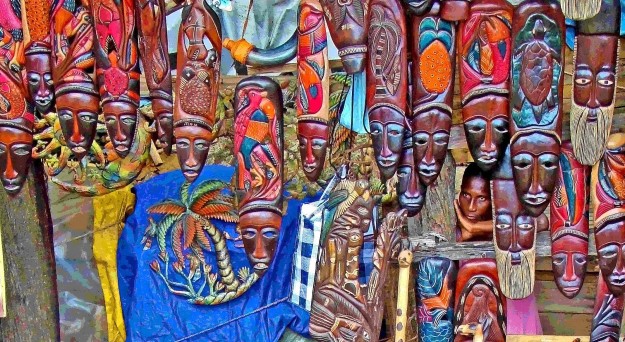
Our self determination is compromised. Independence is a lure that they skillfully get us to trust while, behind the so-called democratic institutions and ideals of power sharing, a strong fishing line waits. We no longer decide our own direction, what we want, what would do us good. They do not care at all about our dignity as a people since all that we represent is simply a lucrative market. As in colonial days, trade with the New World brings large profit. Notions of justice or fairness have no part in this. It is planned poverty on one hand, and assured wealth on the other. The concept of justice in third world countries is a two-pronged dilemma. The political and economic system imposed by the new world economic order not only creates a disparity between rich and poor nations in their dependent relationship, but also feeds the divide between the social classes. Hasn’t neoliberalism called for a withdrawal of the state from social activities in the name of a regulatory theory of public expenditure? Simultaneously, we are witnessing a deterioration of the terms of trade, which neoliberalism and all its accompanying policies fuel from year to year into an extreme poverty, and social and economic disparities; this in turn renders more remote any prospect for social justice. They do not want us to support our production sectors even while they buttress their own.
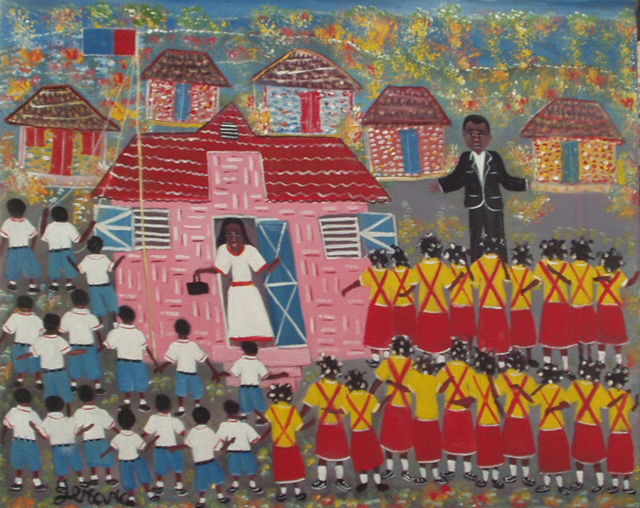
For centuries, the countries of the North have waged a covert war against those of the South. In fact, this is a massacre. All sorts of institutional and economic policies, theories and structural adjustments, and gross political interference are implemented to establish their domination and rampant exploitation. Nothing stands in their way. When these claws dig into our flesh and our blood flows, we cannot help but scream loudly from such suffering, such calamities of the boundless greed of neocolonialism. But when we scream, we do not cry. Rather, we defend ourselves as we have done before, as countries of Latin America and the Caribbean are doing now.

Once again, the masks are falling and the gap below the curtains reveals the real actors, the artisans of the misfortunes of oppressed peoples. Never have Saint Domingue’s black people abandoned themselves to their fate. “To resignation, they preferred the wait or revolt”, said Aime Cesaire. The time for waiting is over! We have the right to determine our destiny. Do not call us negroes anymore. We are your equals. We are black men and women. We are Caribbean, North American, Latin American, and African. We are, more than anything, Haitian men and women. We are “Haiti!”
Sources: Michel-Ange Cadet was born in Cap-Haitien, where he completed his primary and secondary education, respectively, at the Frères de l’Ecole Joseph and the Collège Notre Dame du Perpétuel Secours. After his graduate studies in Economics, he quickly took a taste to youth organization, and he is currently a member of the Research Group on Economic and Social Development of Haiti (GREDESH). | This essay was originally published in French in Haiti Chery and translated by News Junkie Post. | Images three, four, five, seven and eight are of paintings by Gerard Fortuné; photograph six by Bill Sutton.


